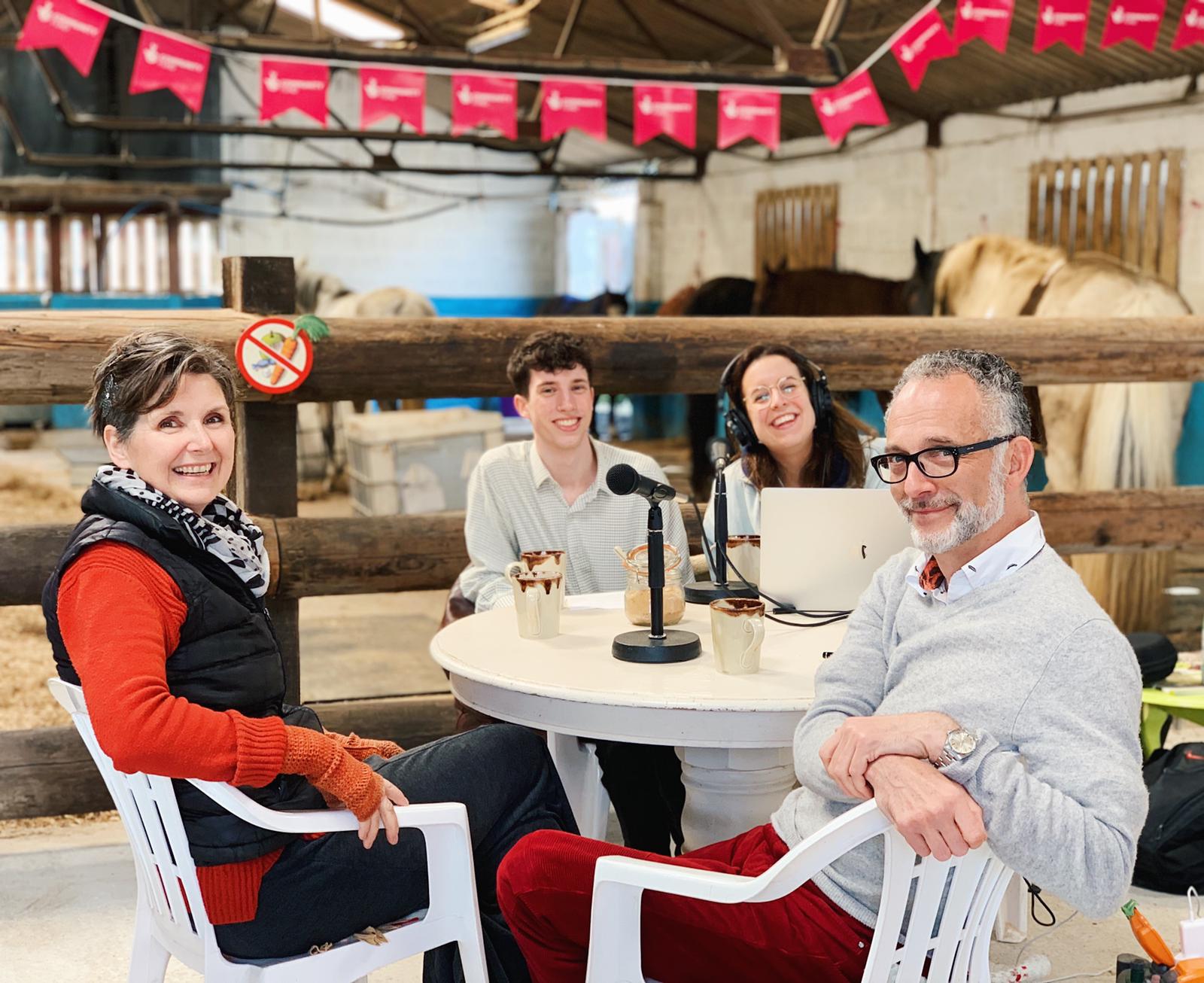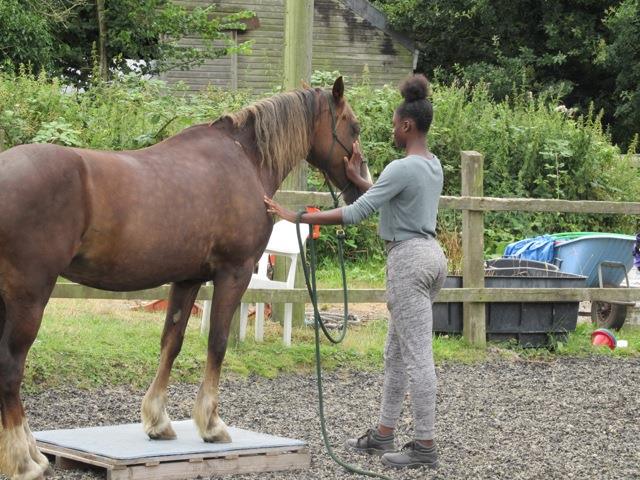Harriet Laurie, TheHorseCourse

What does your organisation do?
We help people who are socially excluded and we use a horsemanship programme to do it.
We mostly work with young people from disadvantaged areas around us. Here in Dorset we primarily serve Weymouth and Portland which are in the top 20% of disadvantaged communities. The issues that we’re helping cover a really broad spread; social work, mental health, education, criminal offending and some specialist areas like drug and alcohol abuse.
What is the service you provide?
We help people learn core skills, like how to be calm, set a focus, communicate, read other people’s emotions and respond appropriately. So really basic things that – in an ideal world – you’d learn as a child. But that initial learning might not go so well with your parents, or a later trauma might mess it up, or perhaps your life circumstances are just too challenging. You might be the victim of domestic abuse and suddenly you don’t know how to get calm – because you’ve never learned it at that ninja level.
Our main programme, ReStart, is an intensive programme: people come for two hours a day, for five consecutive days. We teach them core skills, and we do it with great big scary horses – we don’t give them little cuddly ones or easy-peasy riding school ponies. Unless you present yourself in the right way to the horses, they will ignore you, or be scared of you. So our job is to coach people to be calm, focused, and assertive but not aggressive.
All these skills are exactly what we need to use in our relationships with others, but there are very few opportunities to practice them with people. Building a relationship with a horse is really straight-forward: they don’t have an agenda. If we can communicate and work with a horse, then we can do exactly the same with our children, our family, and other people in the community.

What’s your impact?
TheHorseCourse’s impact is really well-evidenced – we’ve got external studies by a number of universities and industry experts on our website. Bournemouth University’s “Call to Action 2017” found statistically significant results: 81% of participants improve 8 core resilience skills.
We know that 80% of our beneficiaries successfully go on to have better relationships and are more engaged with school, training or work. There are fewer problem behaviours, and beneficiaries feel more hopeful and confident about their future.
So we know there’s a big, lasting change. You can see these people are getting on better in their lives.
What was your experience like on the programme?
I found my cohort to be the greatest resource, and we really bonded as a group in a way that I haven’t found with any other network I’ve been involved in. We were like the 27 musketeers, all rooting for each other. We were able to discuss things in a completely safe way. I was able to share the nuts and bolts of how to build evidence, and others helped me with contacts, franchise agreements and business plans. SSE provided that really safe space for generous sharing.
“We were like the 27 musketeers, all rooting for each other”
Even when some of the information on the course was less practical, it all percolates and it has a fundamental impact on you as a leader of your organisation. I’m still looking back to my notes from SSE witness sessions, and I think I’ll still be looking back at them in two years’ time.
What would you say to someone applying to the School for Social Entrepreneurs?
If you’re lucky enough to get onto an SSE programme, fully embrace it. It’s an uncomfortable process at times but allow the experience to percolate and make the most of it.
And a massive shout-out to Ian. He’s got an amazing style of facilitation – he’s a genuine facilitator rather than a course leader. He’s very subtle about how to manage a lot of personalities in a room, and he always keeps it constructive and fun! He’s also incredibly open to change – a very skilled and clever facilitator.
